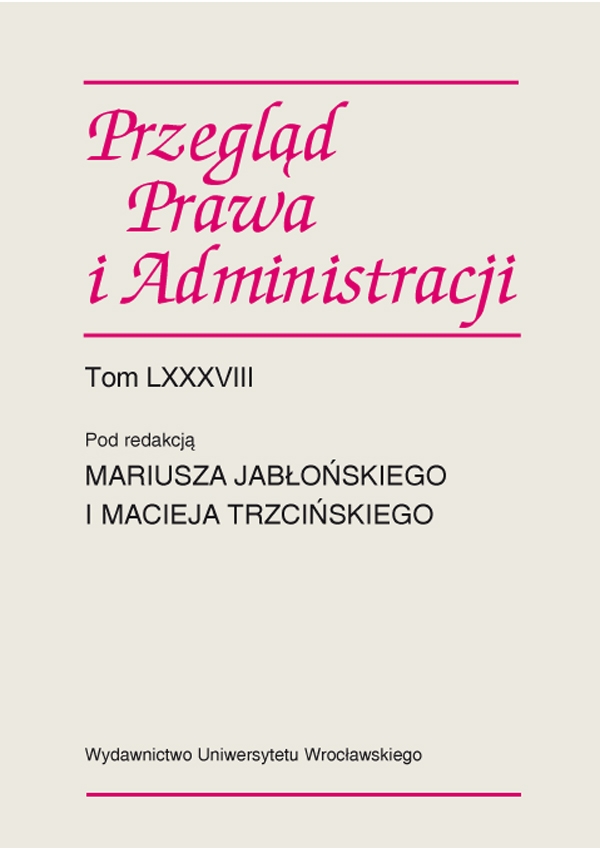

Artykuły archiwalne

POLAND’S LEGAL TITLE TO CULTURAL OBJECTS TAKEN OUT FROM WROCŁAW AFTER THE END OF WORLD WAR TWO
The article discusses Poland’s claims to recover cultural objects taken during the World War Two, in particular from Wrocław and entire Lower Silesia. The author argues that the situation of this region is more complex due to the repositioning of borders following the war. Apart from the restitution of goods stolen in the course of war, which took place according to the general rules of international law in this respect, there is a separate issue of cultural objects taken from the areas that previously belonged to Germany and were assigned to Poland under the Potsdam Agreement. This primarily applies to communal property and collections of museums as well as religious, academic and archiving institutions. These should have been left in the area concerned according to the provi¬sions of the Fourth Hague Convention and its rules of procedure, which were binding at that time for both Germany and the former Soviet Union. If such items, e.g. works of art, library collections or archives, are confiscated, they must be returned. To conclude, it has to be said that apart from the claims concerning the return of the goods stolen in Poland during the occupation of 1939–1945, Poland is fully entitled to demand the restitution of cultural goods, which, under international law, should have been left within the Northern and Western Territories, when these were assigned to the Republic of Poland. This also applies to the rich collection of cultural objects which had been held in Wrocław before the war.